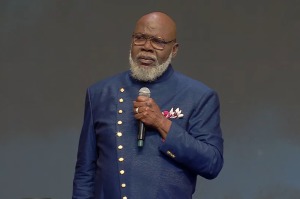Bill O'Reilly's 'Killing Jesus' Spiritualizes the Historical Christ
In undertaking the noble task of writing a book about Jesus Christ, the popular Bill O'Reilly unfortunately ended up cutting Christ in half. He zeroed in on the historical Jesus, while completely missing the historical Christ.
Bill stated in a CBS interview, "It's not a religious book. There's no religion in the book, nothing. It's all about history." But is that even possible? After all, we are talking here about Jesus Christ. Religion isn't just what you say about Him. It's also what you don't say about Him.
Man has always had a tendency to spiritualize the historical Christ. And O'Reilly went for the bait in what he calls his attempt "to separate myth from fact." Bill's book leaves readers with a "Jesus" who is definitely human, and perhaps even divine depending on your perspective.
In reality, Jesus truly is the Messiah, the Christ, and the Son of God. That fact is a matter of history before it is a matter of faith. It is a matter of history before it is a matter of religion. The Gospel writers understood that reality as they wrote their historical accounts.
If the facts about Jesus are going to get presented, wouldn't you want to make sure to separate fact from fiction? Instead, Bill attempted to separate fact from faith. You cannot do that with Jesus, unless of course you want to end up with a man who may or may not be God in the flesh. That is what Bill inadvertently ended up with in his book. And it is a much different story than the one told by the four Gospel writers.
To spiritualize the historical Christ means to move the Messiah outside of the "historical" category into the nebulous category of "maybe." While that can be a helpful starting point when engaging in Christian apologetics with skeptics, it falls far short when attempting to write a history book about Jesus Christ. And that is exactly why "Killing Jesus" misses the mark. Bill wanted his book to present accurate history, but he left out way too much of the historical record concerning the nature of Jesus.
Imagine writing about Babe Ruth but not mentioning baseball. Or writing about Dr. Martin Luther King without addressing racial prejudice. Or what about writing a history of Mormonism while leaving out the founder of their faith, Joseph Smith. Likewise, if you are going to write about the founder of Christianity, it is imperative that you get Him right. Bill got Him half-right, sort of.
The New Testament is not merely "true if you believe in it yourself." It is true because it presents "the whole truth and nothing but the truth" about Christ. That is the way the Gospel writers presented their historical accounts. On the other hand, O'Reilly's book presented selective facts about Jesus the man, and his death. I guess Bill's favorite "Jesus stories" made the cut. While O'Reilly felt free to challenge the Gospel writers on some issues, he completely spiritualized the nature of Christ by ignoring many key elements of the historical record.
In my mind, it is extremely dangerous for Bill to challenge Luke's account of what Jesus said on the cross as his book attempted to do. But it is even more problematic to completely leave out the facts concerning the divine nature of Jesus and His true mission and purpose. Those details are just as factual as any of the history Bill got right. So why leave it out?
This brings us to the crux of the matter. Bill O'Reilly seems to do what a number of Christians do when it comes to their faith. They separate what they claim to "believe" from what they claim to "know." Fair enough. But that is a radically different approach from how other Christians present the story of Jesus.
The faith of many Christians has grown into a certainty in their mind. They have come to see that the Person of Jesus Christ is exactly who the biblical writers describe Him to be. These Christians have more than faith alone. They have knowledge and certainty that this message is true based on the faithful historical record and the working of the Holy Spirit in their hearts. And when they speak or write about Christ, they present the whole story. They don't cut Christ in half, and they certainly don't spiritualize the historical Christ.
O'Reilly stated in the CBS interview that he feels the Holy Spirit led him to write this book. And he seems to really believe it.
Here is what we can know for sure. The Holy Spirit did indeed inspire Matthew, Mark, Luke, and John to write their historical accounts about Jesus Christ. There is no doubt about it. And these men were inspired to present the historical Christ just as much as the historical Jesus. They didn't separate the two natures of Christ into categories of "religion" vs. "history," or "fact" vs. "myth." The whole story was presented as true and factual and historical.
The danger of spiritualizing the Christ of history is that you leave people guessing because you have only presented half of the history. It is only when you present all of the pertinent history that a person can come to a firm conviction that he is standing upon fact rather than wondering about fiction.
I think Bill O'Reilly may indeed grasp the fact that Christ is the only way to the Father and the Savior of the world. It's just that his book omits that essential truth about Jesus. And because of it, the readers of "Killing Jesus" will be left guessing as to the historicity of the Messiah.
There will of course be those readers who already know the history of Christ just as surely as the Gospel writers knew it. The faith of these readers is in the facts and not merely in "religion." Whereas Bill O'Reilly views much of the Messiah's historical record to be a matter of faith, the Gospel writers presented this history to be a matter of fact. Do you understand the difference?
With the way terms like "fundamentalist" and "holy roller" get loosely thrown around today, we could easily pin those labels on the four Gospel writers simply because they claimed to "know" these facts about Jesus Christ. If you claim such knowledge today by combining "religion" and "history," you are perceived by some to be arrogant. It simply goes against conventional wisdom to be such a convinced absolutist. After all, everyone should be able to have his own religious truth, no matter how nonsensical it is to subscribe to that self-contradiction.
This happens to be a dominant worldview in society today. And therefore many people keep the Messiah at arm's length as they relegate him to the mythical category of "religion" rather than the factual category of "history." Unless you combine these categories just as God did when He produced "His Story" in real time, you can end up learning some facts about Jesus' crucifixion, while lacking faith in Christ's death and resurrection for your salvation.
Jesus Christ didn't come to earth merely to give us some information. He came here to save us from our sin. Will you place your faith in the God of history, or will the death of Jesus continue to be nothing more than an intellectual exercise that tickles your mind with curiosity and religious sentiment?
O'Reilly has written his book. But what would your book say if you wrote about Jesus the Messiah? Would you spiritualize the historical Christ, or would you do what the four Gospel authors did? They presented the divine nature of Jesus not simply as a matter of faith, but more importantly as a matter of fact.
Does Bill's "history book" about Jesus rise to their level, or fall far below it? He reports. You decide.





























